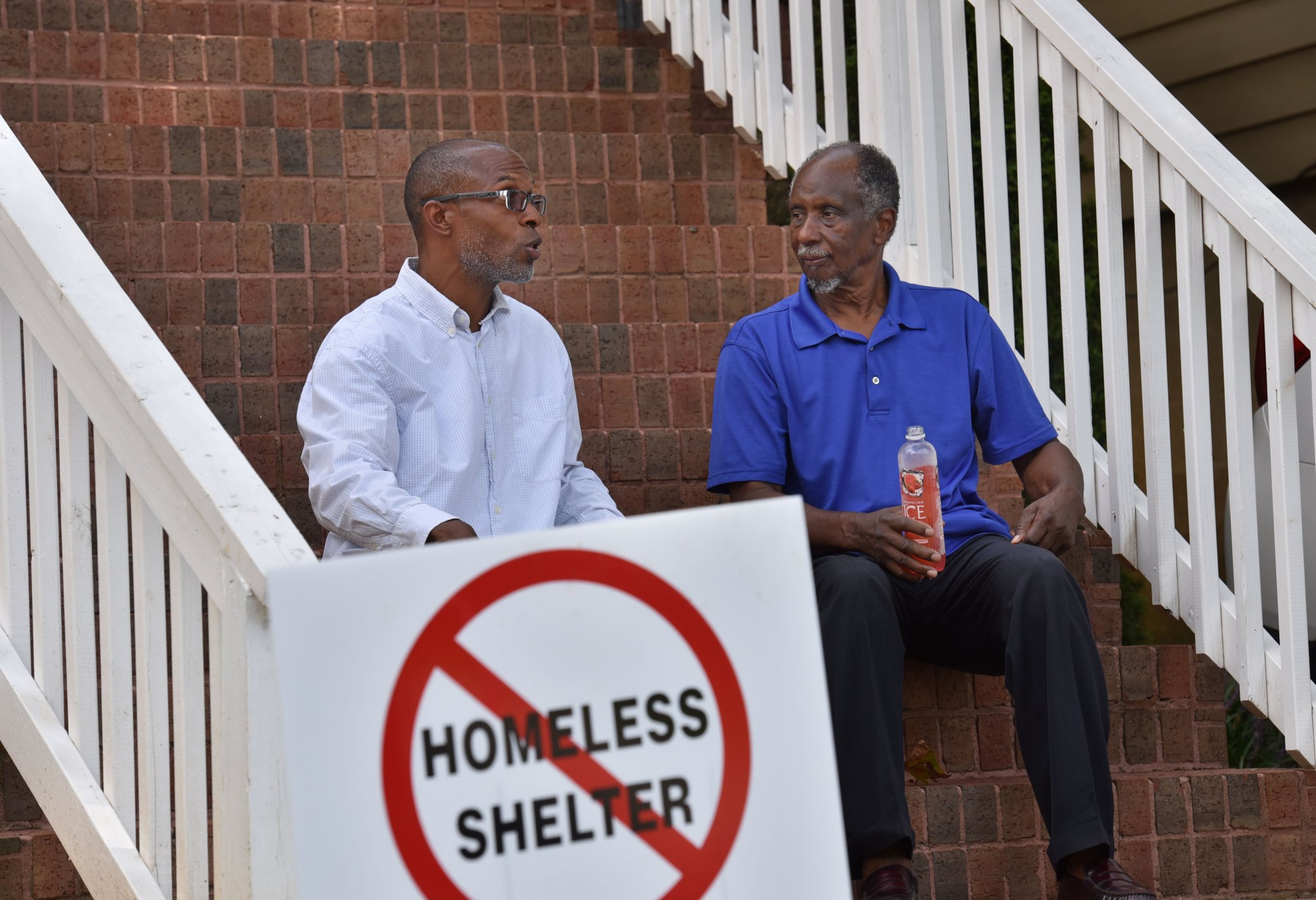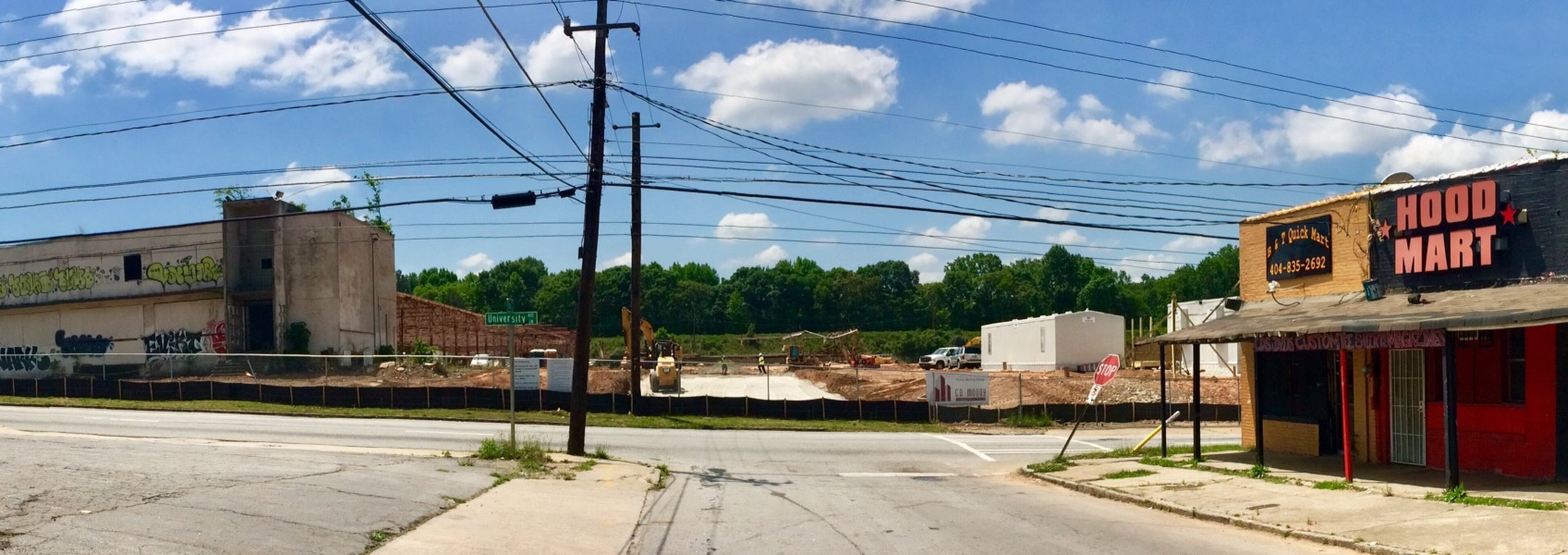Torpy at Large: Uneasiness along Atlanta’s newest gentrification front

In March, a philanthropic organization, The Annie E. Casey Foundation, announced a $26 million mixed-use project featuring restaurants, shops, offices and light industrial businesses.
The project on University Avenue, 2 miles south of downtown Atlanta on the border of Pittsburgh — the historically black community founded in 1883 — will take up half the 31-acre site and be at a future leg of the Beltline.
It will be called Pittsburgh Yards.

Pittsburgh’s more recent history has been dire, one of mortgage fraud, foreclosures, home abandonment and crime.
In 1970, Pittsburgh had 7,300 residents. These days, perhaps 3,500.
In late 2014, the community had maybe the most dangerous corner in the city: 1029 McDaniel Street, site of the "Pink store," an infamous hangout for young men in search of trouble. During a two-month period that year, two men were shot to death there in separate incidents.
Coincidentally, when I visited Pittsburgh in December 2014, the first person I encountered had survived a shootout at the Pink store two years earlier. A police report confirmed his story.
Of the 24 homes on that two-block stretch of McDaniel Street, only six were occupied in late 2014, while 11 are occupied today.
Amid the hoopla of new development, I figured it was time to check back in.
The neighborhood still has many, many houses that remain boarded up, and debris occupies overgrown lots and street corners. Increasingly, however, there are green shoots of growth: Dumpsters, construction crews and renovated homes.
But as the long-unloved community gets investment, an undertone of uneasiness and struggle is taking root.
In one corner, there’s the PittsburghAtl Homeowners United, founded last year by mostly new residents trying to get traction with codes enforcement and increased police presence.
On the other side there’s the Pittsburgh Neighborhood Association, consisting mostly of longtime residents who also want improvement but worry it will lead to their exit. That group is headed by former state Rep. Doug Dean, who has been at this kind of thing for a long time.
I drove around with Tone Lane and Devon Holloway, founders of the homeowners group. Lane, a teacher who has lived there 10 years, is white. Holloway, a computer guy, is black.

Lane lamented that new residents are being shunted aside.
“We are taking it on the chin; the neighborhood association has called us racists,” he said. “We just want laws enforced. We’re not asking. We’re insisting.”
Illegal dumping. Pot smoking in the open. Motorbike racing. Codes enforcement. That’s some of what’s on their list.
I asked about fears that gentrification will push out longtime residents.
“Gentrification is a victim role,” Lane said. “If your taxes are paid and you’re up to code, you don’t have to go. This is the time to take charge of your life. Manage your life. Manage your property. Take responsibility.
“It takes time to change a narrative. The neighborhood has been sleeping with the wrong message.”
Holloway nodded in agreement. In 2015, Holloway bought a house catty-corner from the Pink store, the notorious crime magnet that the city eventually purchased and closed.
“A lot of the homeowners have lived here for 20 years and don’t want to see change,” he said. “I could be accused of gentrification. I’m there working with black and white to build a better life.”
He said his group is approaching longtime residents to tell them of grants to fix up their homes.
But ex-legislator Dean, who heads the Pittsburgh association of longtime residents, says codes enforcement is often aimed at current residents, not the absentee landlords who own scores of rotting homes.

“This community needs resources,” Dean said. “We need to repopulate this community. But we need to repopulate the community in a way that won’t displace those who’ve lived here all their lives.”
Dean has resided in Pittsburgh for decades. “Most of the old people died off, and the young people sold out and moved away,” he said. “Now the new residents want to come in and take over, white and black. Whites come in and tell us what the community ought to be. We know what it ought to be.”
Dean sees the homeowners group as “gentrifiers who hide behind diversity.”
He then brought up a battle from his past — the development in the neighborhood around Turner Field.
“In Summerhill we failed in reaching our goal,” Dean said. “After we revitalized Summerhill, they wanted to take over. That’s why I’m leading the fight in Pittsburgh.”
It should be noted that Dean lost his seat in the majority black district to a white candidate in 2006 and was forced from the Summerhill Neighborhood Development Corp. over accusations of fuzzy accounting.

William Murray runs a funeral home on McDaniel Street. It was a crack den when he bought it in 2008 for $35,000. His wife thought he was crazy.
He chuckled when talking about the competing groups, saying, “Everyone wants to be chief.”
Murray echoed the founders of the homeowners group when talking about gentrification.
“It’s what comes with progress,” he said. “If you’re not a good custodian of yourself, constantly improving, if you’re on cruise control with your life, then it catches up with you. It’s not a black thing. It’s not a white thing. If you want something, it takes sacrifice.”
But won’t low-income people lose out?
“Blue-collar people can still afford it here,” he said. “But they can’t expect to catch it when the improvement is done. They’ve gotta do it now.”
While driving around, we ran into Greg Hightower, a local who has bought and renovated houses for a decade. In fact, he sold Holloway his home.
“This is house No. 11,” he said with a smile. “This area is a no-brainer.”

On McDaniel Street, there’s Floyd Plaza, with a small grocery store run by Chloe Floyd.
"I am The grocery store," she said. "We're a food desert. We're the only black-owned business in Pittsburgh."
Floyd’s family owns several properties, and at first she thought I was an investor.
“They come in with offers that are an insult,” she said. “They are either used to people being desperate or ignorant.
“I’m not either.”


